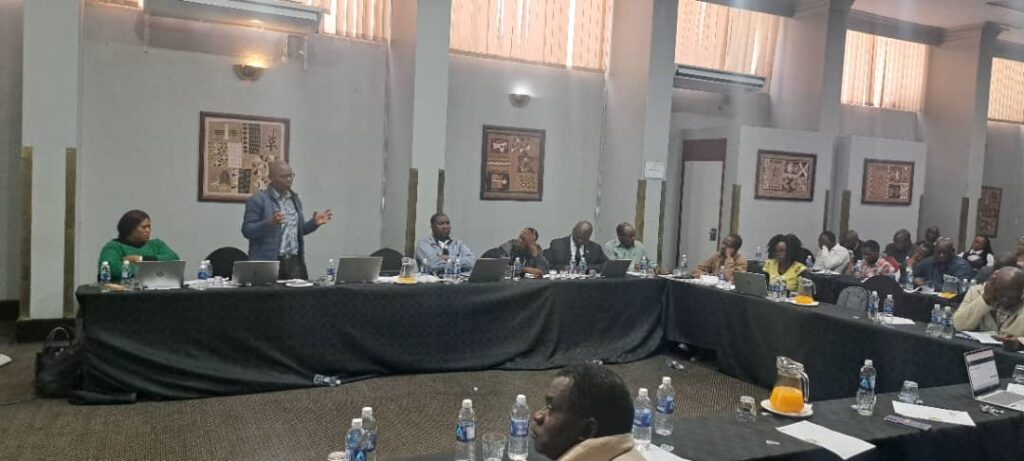Borrowing from the Green Roads for Water (GR4W) project in Kenya, the
Smallholder Agriculture Cluster Project recently held a
learning event on road water harvesting. The event was
attended by officials from the project, Department of
Irrigation and the Rural Infrastructure Development
Agency (RIDA). Officially opening the workshop, SACP
National Project Coordinator, Dr Godfrey Nehanda said
the workshop was necessitated by the need to get
introductory exposure to road water harvesting since it is a
new phenomenon in Zimbabwe.
The workshop was facilitated by, Frank van Steenbergen of Metameta, South Africa,
who highlighted that the country’s roads can become green
roads. Green roads present a triple win with very little
additional investment, such as reduced road maintenance
costs, reduced degradation of the landscape around roads
and beneficial use of water for roadside communities. The
other benefits of green roads include water security,
agricultural production, risk management, connectivity,
land protection and health. Van Steenbergen said the
technology of road water harvesting is currently being
implemented in countries like Ethiopia, Mozambique,
Zambia, Malawi, Sudan and Kenya.
Van Steenbergen explained that there is great need to
engage community members so that the project is well
received by the communities and there is willingness to
take part in the project. He noted that there could be
encroachment into fields and the need for additional land
for the green roads will be on a case-by-case basis. With
Page 7
regards to water quality the presenter highlighted that
water is not necessarily harvested from the road surface.
The presenter went on to highlight that this was just an
introduction since the actual training takes a period of 5
days.
Mr Micahel Maluki presented on the Kenyan experience
where green roads for water are key in rainwater
harvesting for climate resilience, improved community
livelihoods and resilient transport functions. The Green
Roads for Water program includes creating beneficial
water and land management, improved livelihoods for the
local communities fostering inclusive growth, climate
resilient infrastructural development, reduced roads
maintenance, reliable road connectivity, reduced transport
cost to access vital services and economic integration,
pollution control caused by dusty roads, preserving
biodiversity and climate resilience.
The Deputy Director for the Rural Infrastructure
Development Agency, Engineer Mapako expressed
gratitude for having had his team take part in the Road
water harvest training as it came at a relevant time when
they had been working on a road erosion control project.
He emphasized the importance of harnessing road water
especially in the rural areas for use even for livestock
watering.

